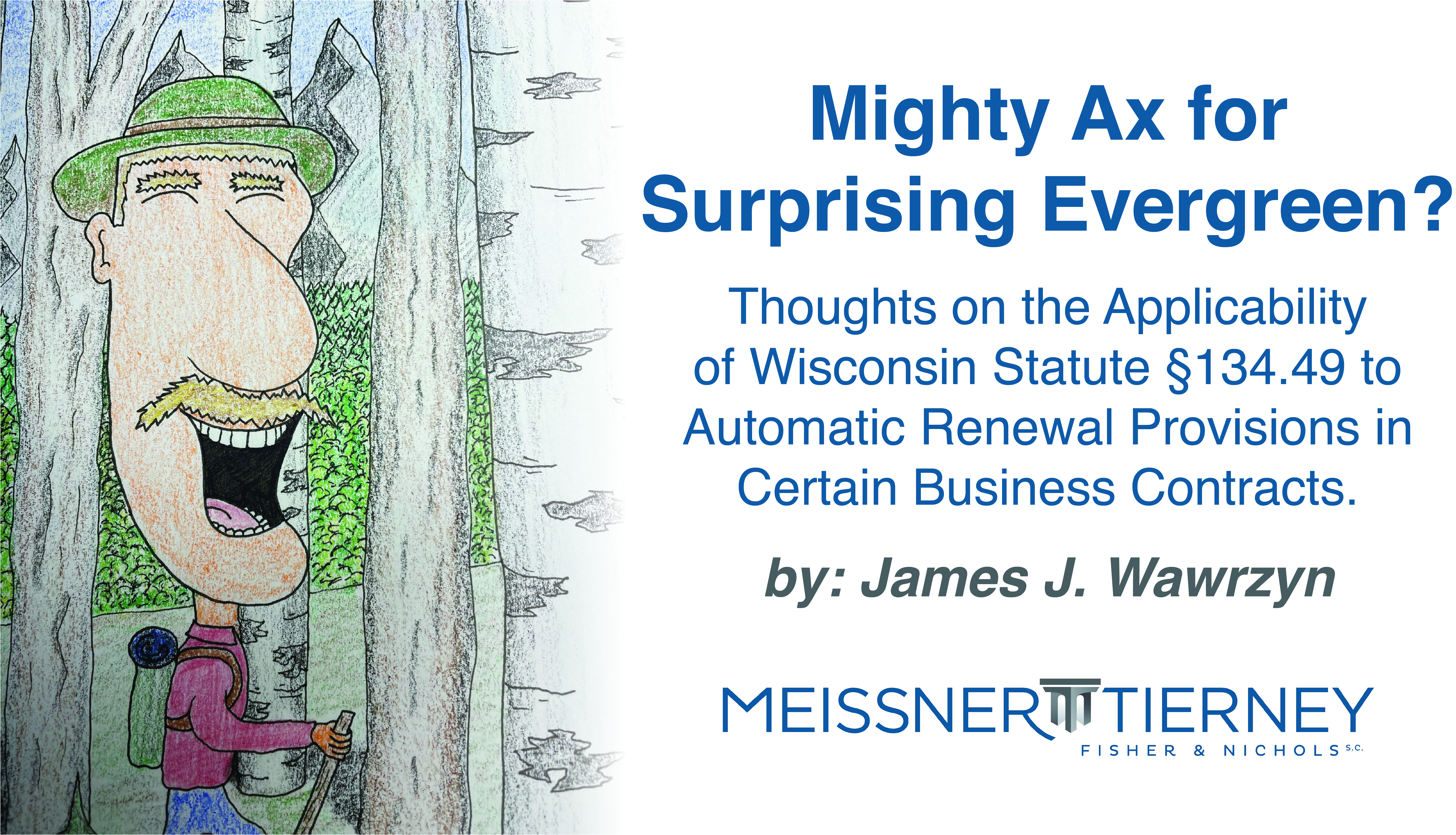Commercial contracts commonly provide that the term of the contract will renew automatically after the initial term. These “evergreen” provisions can be helpful for many business relationships. They ensure that the terms of the agreement will continue to apply without the parties needing to take any further action.
When one party decides that it wants out of a contract with an auto-renewal provision, Wisconsin Stat. § 134.49 may provide a potential curveball. Depending on your position, that curveball can be a blessing or a curse. The statute may function to permit a party that failed to give notice of nonrenewal an escape hatch because the initial contract failed to satisfy formal requirements.
For certain business contracts, an automatic renewal provision may be unenforceable unless the seller satisfied certain disclosure requirements. To figure out whether the contract you are looking at falls within the scope of “certain business contracts,” one will need to visit the list of types of contracts excluded from the definition of business contracts in the statute—with a 2019 amendment, the list went to 15 exclusions.1
If the business contract is not excluded under the statute, a seller must have informed the customer of the following:
- a) That the contract included an automatic renewal provision;
- b) The duration of additional terms;
- c) Any increase in charges during the renewal term;
- d) A description of how the customer may decline the renewal term; and
- e) The date by which the customer must decline the renewal term.
The notice may be given either conspicuously in the contract (with the customer initialing the page where the disclosures appear) or in a separate form signed by the customer. If a seller fails to provide adequate notice regarding each item listed above, the automatic renewal provision is not enforceable. Thus, the escape hatch for a buyer who failed to give notice of nonrenewal pursuant to the contract’s terms.
What do you do if you have a bunch of contracts that have automatically renewed, but they do not include the required disclosure? Wisconsin Statute § 134.49 covers that too. Automatic renewal provisions remain enforceable if proper notice is given to customers at least 15 days before the deadline for the customer to decline the renewal. Keep in mind that such notice will not be effective if it is given more than 60 days before the deadline. The notice must include substantially similar information to that which is listed above.
Statutory requirements regarding the form of notice get rather particular. For example, notice given on the first page of a monthly invoice must be “prominently displayed in bold type face and in a type size no smaller than 12-point.”
So, will Wis. Stat. § 134.49 function as a mighty ax for an unexpected evergreen? For sellers, the hope would be that appropriate notice has been given to comply with the statute. If not, a buyer may be able to escape applicability of the renewal term if the contract at issue falls within the scope of business contracts for purposes of the statute.
If you have any questions about the enforceability of evergreen clauses, please contact James Wawrzyn or your Meissner Tierney Fisher & Nichols S.C. attorney.






